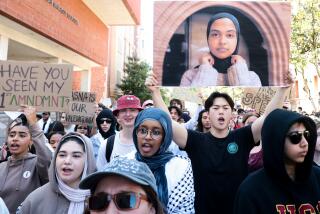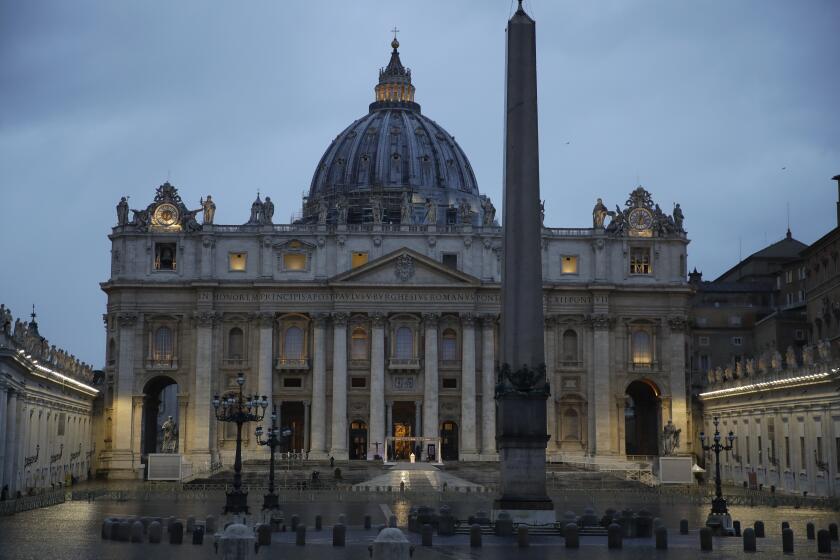Prop. 8 and the 9th Circuit
Disappointing as it is that California hasn’t already celebrated its first same-sex marriages since the passage of Proposition 8, at least there are promising signs that the appeals court is ready to move swiftly and judiciously.
Of course, there was widespread hope — ours included — that the stay preventing such marriages would end Wednesday. That was before the U.S. 9th Circuit Court of Appeals extended the stay Monday until it has heard the case.
The appellate panel did not elaborate on its reasons for granting the extension to supporters of the ban on same-sex marriage, after U.S. District Court Chief Judge Vaughn R. Walker ruled that Proposition 8 was unconstitutionally discriminatory and lacked a rational basis for becoming law. Yet in its terse decision, the appeals court indirectly indicated that it was keenly aware of some of the key concerns about the proposition.
For one thing, it set an expedited schedule for deciding the matter, with the first filing due in September and arguments to be held in December. The implication is that the court appreciates that, should it uphold Walker’s ruling, gay and lesbian couples will have been denied their constitutional rights for months beyond that ruling, and that delaying constitutional rights is a serious matter.
The appellate panel’s decision also contains a fleeting reference to the court’s intention to require Proposition 8’s supporters to show that they have the legal standing to appeal. The federal lawsuit to overturn the measure was filed against Gov. Arnold Schwarzenegger. He and Atty. Gen. Jerry Brown have declined to defend Proposition 8, leaving that to its supporters. Usually, the parties in an appeal must be directly affected by the original ruling, and Walker already has raised doubts that Proposition 8’s supporters meet that test, because he also found that same-sex unions do not in any way harm heterosexuals or their marriages.
The right of gays and lesbians to marry should be recognized, and soon. But better that the court should reach that decision on the merits than dismiss the appeal on the basis of standing. Although the standing question is significant, gays should be permitted to marry because the Constitution’s insistence on equal protection demands it, and such a ruling would provide a more satisfying and durable foundation for it.
The appellate courts should recognize the undeniable merit in Walker’s opinion: Homosexuals as a group have long suffered from many kinds of discrimination and thus require the fullest protection of the courts. There is no reliable evidence that same-sex marriage is harmful to children or that it is a threat to social stability. Marriage is a fundamental right, and the attempt to withhold it from a particular group — whether mixed-race or same-sex couples — is irrational, immoral and unconstitutionally discriminatory.
More to Read
Start your day right
Sign up for Essential California for news, features and recommendations from the L.A. Times and beyond in your inbox six days a week.
You may occasionally receive promotional content from the Los Angeles Times.






